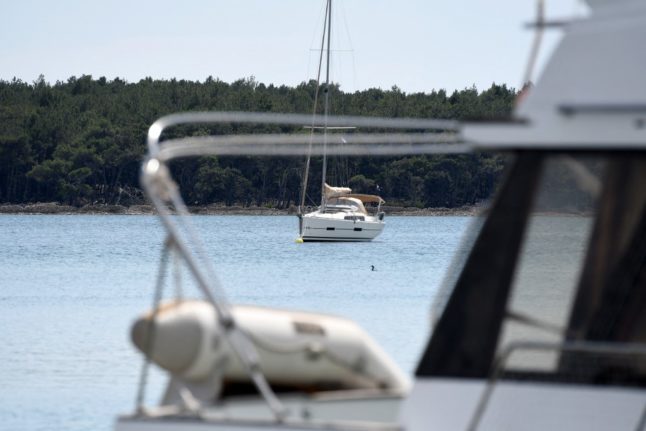Living on a house boat is fairly common in countries like the Netherlands and United Kingdom, while less so in Spain.
With the cost of living crisis pinching people’s pockets and the Euribor rate making home ownership impossible for many, some in Spain are turning to house boats as an alternative. In fact, it’s a growing trend in Spain, with the sale of recreational vessels increasing at a rate of 8 percent a year.
In Port Vell in Barcelona, as many as 150 people already live there on boats, with a significant waiting list.
Despite not being as popular in Spain as in other countries, demand can’t keep up with supply in Spain.
The Association of Industries, Commerce and Nautical Services (ADIN), estimates that Spain has only 107,894 moorings spaces for 229,000 boats.
There are 292 marinas in Spain, 70 percent of which are on the Mediterranean.
Living on a boat is entirely legal in Spain. You are perfectly within your rights to live on the high seas (or in a port, at least) and move around as and when you please.
That doesn’t mean that you can just buy any old boat and moor up anywhere you like, however. There are rules and a few hoops to jump through.
The steps to living on a boat in Spain
According to several Spanish maritime sources, buying a used boat that you can live on in Spain can cost anywhere between €13,000 and €150,000.
Spanish website topbarcos.com has hundreds of boats listed for you to get an idea of what’s available in the second-hand market, as well a page for new vessels.
Sailboats (veleros in Spanish) tend to be among the most popular for people to live in.
If you buy a vessel from a company you’ll have to pay VAT (IVA), and if you buy it from a person, you’ll have to pay ITP tax, the same levy people who buy second-hand homes must pay. VAT is usually 21 percent of the value of the boat whereas ITP depends on the Spanish region where you’ve bought it, ranging from 4 to 8 percent. You have to pay the Spanish taxman ITP within 30 days of the purchase.
You may also have to pay registration tax (impuesto de matriculación) for new boats or those imported from abroad if they’re longer than 8 metres.
But before you complete the purchase, you should consider whether you’re going to buy or rent mooring space at a port, as you’ll need to have a place to take your barco in order to not run into issues.

The price of a fixed amarre (mooring space) depends enormously on its size, the type of vessel and the port in question. For example, you can buy a mooring space for €13,000 in Castellón or for €340,000 at Alicante’s Nautical Club. Renting can also go from €200 to €4,000 a month depending on the conditions mentioned previously as well as the season.
Once you have your boat and have rented a mooring space, you must notify the local port authorities that your boat will be considered a place of residence, effectively getting on the town hall census, also called the padrón.
This is crucial because the relevant authorities will have to check that the boat meets the necessary security conditions of Spain’s Maritime Navigation Code to be considered a residence.
Therefore, it has to be properly equipped, have all the correct sailing licences, and not pose any danger to other boats or people.
It should be noted that the technical requirements for being a residential boat can depend on the municipality or port in which you want to live.
Therefore, it is always recommended that before taking the plunge and buying a boat you consult the local municipal regulations regarding mooring and house boats.
If you’re new to boat living, you may also be wondering whether it would be wise to rent one first before committing to such a drastic life change.
This is of course possible, but renting a small sailboat usually costs more than €1,000 a week, so it would be advisable to strike a deal with the owner for a longer term rental agreement which sees you pay considerably less.
Remember as well to consider all the pros and cons of boat living, from having less space and comfort to enjoying the freedom and beauty of the great outdoors on water.
READ ALSO: How do I get my boat licence in Spain



 Please whitelist us to continue reading.
Please whitelist us to continue reading.
Member comments